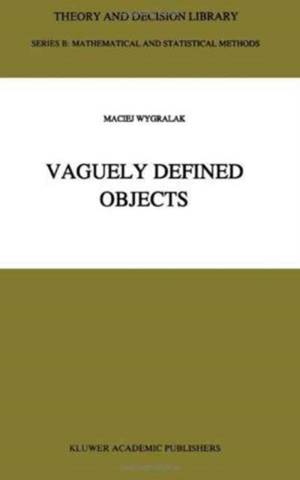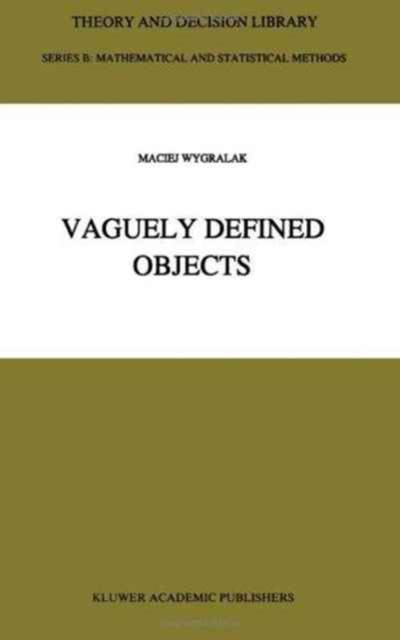
Bedankt voor het vertrouwen het afgelopen jaar! Om jou te bedanken bieden we GRATIS verzending (in België) aan op alles gedurende de hele maand januari.
- Afhalen na 1 uur in een winkel met voorraad
- In januari gratis thuislevering in België
- Ruim aanbod met 7 miljoen producten
Bedankt voor het vertrouwen het afgelopen jaar! Om jou te bedanken bieden we GRATIS verzending (in België) aan op alles gedurende de hele maand januari.
- Afhalen na 1 uur in een winkel met voorraad
- In januari gratis thuislevering in België
- Ruim aanbod met 7 miljoen producten
Zoeken
€ 97,95
+ 195 punten
Uitvoering
Omschrijving
In recent years, an impetuous development of new, unconventional theories, methods, techniques and technologies in computer and information sciences, systems analysis, decision-making and control, expert systems, data modelling, engineering, etc., resulted in a considerable increase of interest in adequate mathematical description and analysis of objects, phenomena, and processes which are vague or imprecise by their very nature. Classical two-valued logic and the related notion of a set, together with its mathematical consequences, are then often inadequate or insufficient formal tools, and can even become useless for applications because of their (too) categorical character: 'true - false', 'belongs - does not belong', 'is - is not', 'black - white', '0 - 1', etc. This is why one replaces classical logic by various types of many-valued logics and, on the other hand, more general notions are introduced instead of or beside that of a set. Let us mention, for instance, fuzzy sets and derivative concepts, flou sets and twofold fuzzy sets, which have been created for different purposes as well as using distinct formal and informal motivations. A kind of numerical information concerning of 'how many' elements those objects are composed seems to be one of the simplest and more important types of information about them. To get it, one needs a suitable notion of cardinality and, moreover, a possibility to calculate with such cardinalities. Unfortunately, neither fuzzy sets nor the other nonclassical concepts have been equipped with a satisfactory (nonclassical) cardinality theory.
Specificaties
Betrokkenen
- Auteur(s):
- Uitgeverij:
Inhoud
- Aantal bladzijden:
- 268
- Taal:
- Engels
- Reeks:
- Reeksnummer:
- nr. 33
Eigenschappen
- Productcode (EAN):
- 9780792338505
- Verschijningsdatum:
- 31/12/1995
- Uitvoering:
- Hardcover
- Formaat:
- Genaaid
- Afmetingen:
- 160 mm x 240 mm
- Gewicht:
- 648 g

Alleen bij Standaard Boekhandel
+ 195 punten op je klantenkaart van Standaard Boekhandel
Beoordelingen
We publiceren alleen reviews die voldoen aan de voorwaarden voor reviews. Bekijk onze voorwaarden voor reviews.









